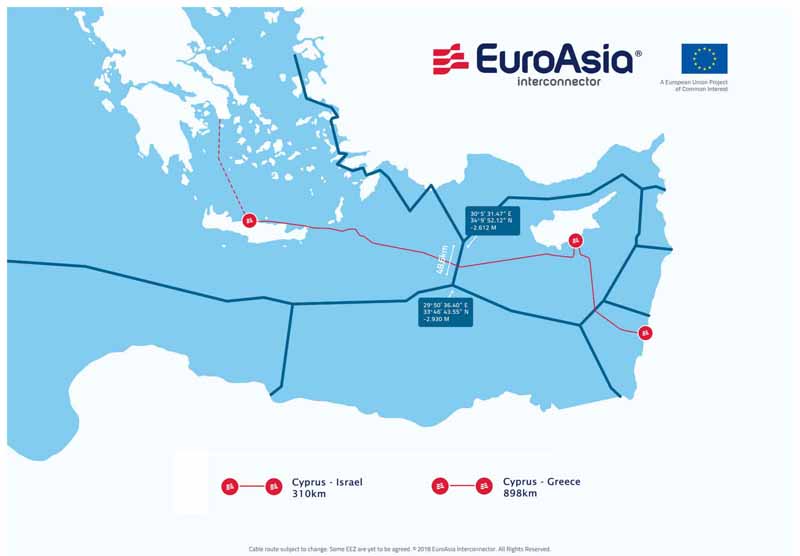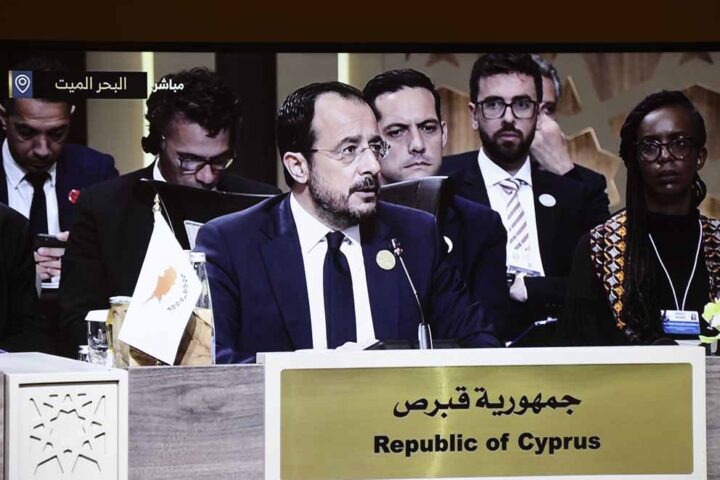With Nicosia hosting the trilateral meeting of heads of state on July 26, Cyprus, Greece, and Israel leaders will meet for the first time – two-re-elected and a newcomer.
Top on their agenda of common challenges will be energy, although cooperation on defence, water and regional conflicts will also be discussed, and relations with Turkey.
As a priority, Prime Minister Benjamin Netanyahu needs help to deal with Israel’s energy deficit, which is expected to hit rock bottom by 2025-2027 due to delays in bringing online new, efficient, and renewables-friendly power stations.
PM Kyriakos Mitsotakis will emphasise that Greece is pushing ahead with its Alexandroupolis energy hub and hopes natural gas flows from the eastern Mediterranean will transform it into a major player, in addition to the solar parks and wind farms mushrooming throughout the country.
And President Nikos Christodoulides will highlight the need to keep ahead with plans for a pipeline, either to Europe or, at a lower cost, to Cyprus’ shores.
Whether natural gas will remain competitive in the world market is hard to tell, but at least it will be cheaper and cleaner to burn than the diesel used at the Vassiliko power station.
But the key to all these projects is the EuroAsia Interconnector, the 1,208km subsea electricity cable, connecting the national grids of all three countries and reaching beyond the continental Europe network to sell or buy energy produced from local RES units.
This is a major infrastructure, the longest and deepest, to be manufactured by the French-Norwegian colossus Nexans, with HVDC converter stations to be built by energy giant Siemens.
And unlike the other natgas projects, the EuroAsia is mature and shovel-ready.
It just needs the political support to be fast-tracked and completed in time for the 2027 deadline, as announced by Energy Minister Giorgos Papanastasiou.
It has already secured funding from the European Commission and Cyprus.
And it is seeking financing from institutions, such as the European Investment Bank and other sources.
While the recent announcement that Greece’s Independent Power Transmission Operator (IPTO) is close to securing a 25% stake will help open doors in Greece, especially with long-overdue licensing issues.
A lot has been said recently about the rising cost of building the interconnector, as long as this is within reason and justified from the revenues on future tariffs, primarily shared between Cyprus and Greece.
There is also a geostrategic benefit from the EuroAsia.
Apart from ending the energy isolation of Cyprus, which is of critical importance to the island’s future security, it enhances Nicosia’s direct participation in European energy matters, hastened by the need to disengage the continent from its over-reliance on Russian natural gas after it invaded Ukraine.
Only then will the importance of the Aphrodite gas field in Cyprus waters be appreciated, as selling in the highly competitive LNG market will be difficult while producing cheap electricity almost ‘at source’ and selling it makes more sense.
For Israel, too, the EuroAsia now appears vital, and they have finally realised to ensure the country’s security of energy supply, an initiative that also enjoys Washington’s blessing.
Ideally, Israeli natural gas could be shipped to Cyprus, burned, converted to electricity, and sent back via the interconnector.
The project’s developer has long been ready.
All that is left now is the political will from Netanyahu, Mitsotakis and Christodoulides to get it done.










